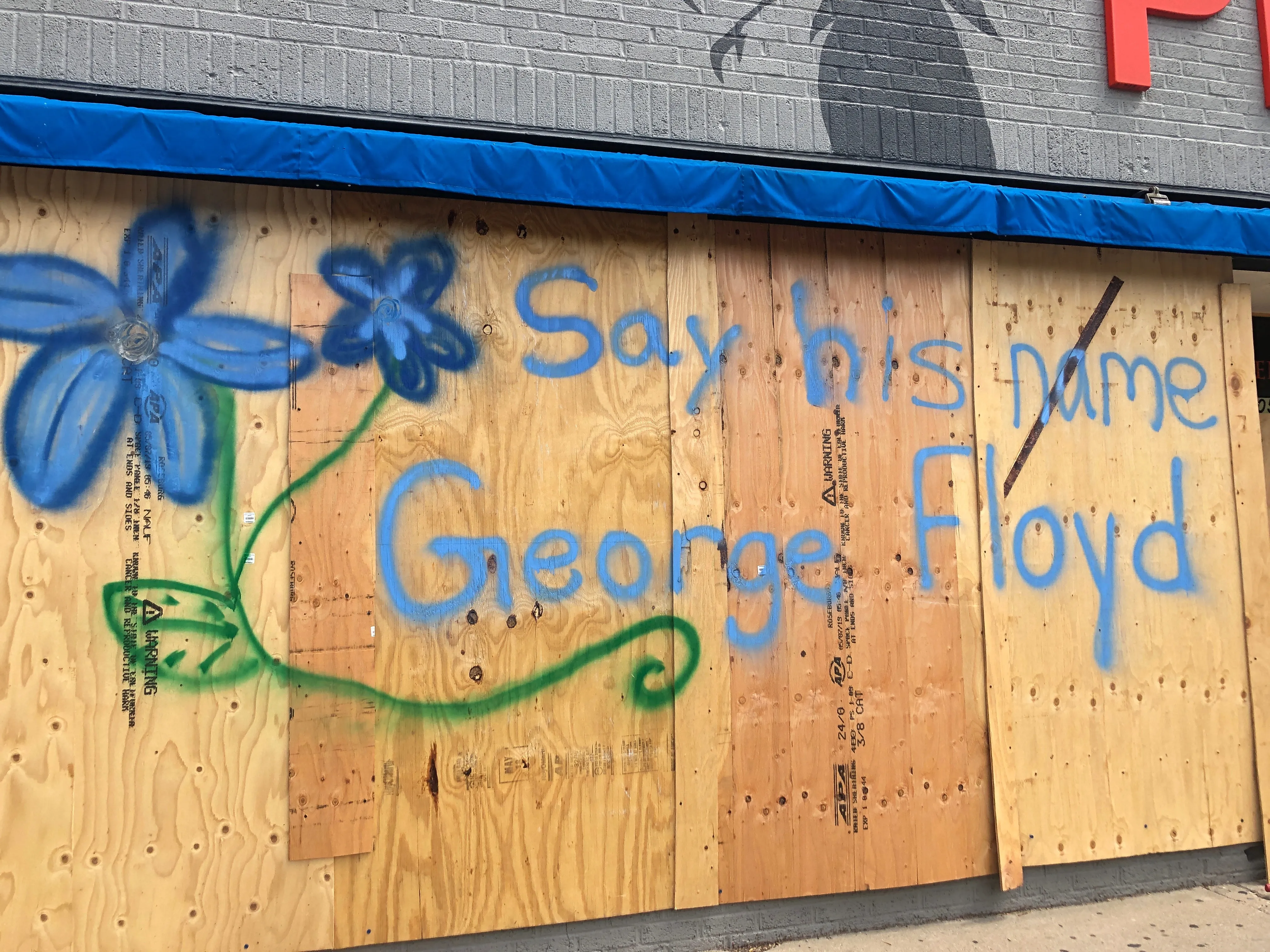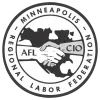A CALL TO ACTION: We Are Still Healing — As Black Women and Union Workers, George Floyd’s Legacy Demands More than Symbolic Solidarity
As Black women, labor organizers and staff at the Minneapolis Regional Labor Federation, we know that George Floyd’s murder was not just a national reckoning — it was personal. It happened in our city. In our communities. On streets we know by name. And for one of us, it happened just blocks from where we call home.

We are now approaching another anniversary of that horrific day in May 2020. And with it comes another wave of grief, rage and exhaustion. The recent news that President Trump is considering pardoning Derek Chauvin only intensifies those feelings. It threatens to undo the little accountability that was won, and sends a devastating message to our communities: that Black lives are negotiable, and justice is conditional.
We believe labor can lead — not follow — on the path to racial justice.
George Floyd mattered. Black people matter. The trauma of his murder still lives in our bodies, our neighborhoods and our workspaces. For one of us, the trauma runs so deep that returning to that neighborhood still feels impossible. The corner where George Floyd was murdered used to be part of a regular walk, a place to grab coffee, a stop between errands. Since his death, it has become a painful reminder of how little control we have over our own safety — even in familiar places. The emotional weight of it all still lingers.
And yet, George Floyd was more than a headline. He was a person. A father, a community member, a human being. But he also represents every Black body in this country — every life that has been threatened, dismissed, or stolen by systemic racism and white supremacy. His story is singular, but it is also deeply collective. That’s why honoring him means fighting for every Black worker, every Black family, every Black life.
So as we mark another year since George Floyd’s death, we call on our labor siblings to walk with us — not just in mourning, but in the daily work of healing and transformation.
There is no “right” or “wrong” way to fight for racial justice. It’s uncomfortable, messy and often painful. But that is exactly why we must be intentional. We must be loud. We must be unapologetic in how we show up and in how we build a labor movement that reflects the full humanity of all its members.
Unions are more than workplaces. The labor movement is not just a vehicle for better wages — it is a force for transformation. It is a space where we can reshape our communities, redefine justice, and redistribute power. Labor holds an incredible amount of power in this country, and it is time we become deliberate and strategic about how we use it.
We believe labor can lead — not follow — on the path to racial justice. But only if we’re brave enough to be honest about where we have fallen short and bold enough to imagine something better. That means making space for grief. That means confronting racism inside our own halls. That means centering Black voices, Black union members — not only in moments of tragedy, but in everyday decisions, policies and practices.
We believe in building that kind of union. A union that honors George Floyd not just in remembrance, but through action. A union that doesn’t flinch when the conversation gets uncomfortable. A union where Black workers are not just seen, but heard, believed and supported.
So as we mark another year since George Floyd’s death, we call on our labor siblings to walk with us — not just in mourning, but in the daily work of healing and transformation. Check in on your Black coworkers. Push your local to provide space for emotional care. Speak up when racism shows up on the job. And keep fighting — not just for economic justice, but for racial justice too.
Because when we fight, we win!
We just need to fight.
In power and healing,
Alfreda Daniels
Executive Campaign Manager
Minneapolis Regional Labor Federation
Mary Hampton
Organizer
Minneapolis Regional Labor Federation
▪
